Days when Preston had SEVEN newspapers
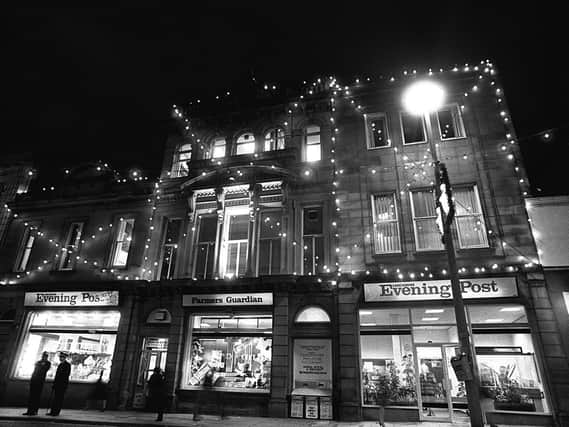

France declared war on Prussia on July 19, 1870. Six da ys later, on Fishergate, two rival newspapers also declared war – the Preston Evening Express, launched by Anthony Hewitson, against the Preston Evening News, backed by George Toulmin.
These were Preston’s first evening newspapers, published 16 years before the Lancashire Evening Post. Around midday on Monday, July 25, crowds gathered outside both newspaper offices, only a few yards apart.
Advertisement
Hide AdAdvertisement
Hide AdHewitson’s office was at 24½ Fishergate, where Whittles jewellers is now, at the top of Guildhall Street; Toulmin’s headquarters were at No.11, the site now occupied by Boots the chemist.We don’t know which paper hit the streets first, but we do know that Toulmin’s deeper pockets, and tougher business methods, won this newspaper war, and Hewitson admitted defeat on August 23, after a month.
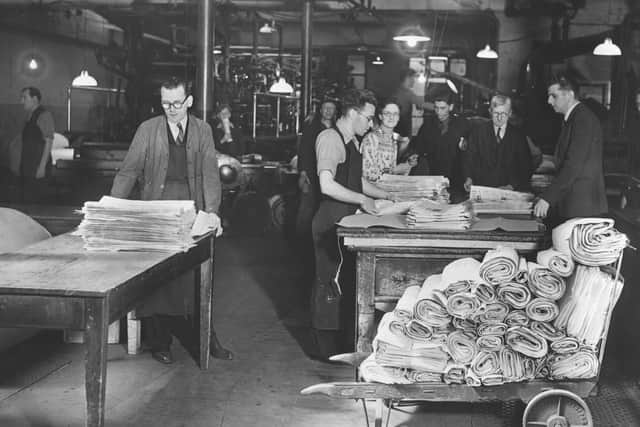

They say history is always written by the winners – but not in Preston. Hewitson went on to write a definitive history of Preston a few years later, in which his pioneering evening paper gets a mention, but Toulmin’s does not!
But back in 1870, both publishers already had other papers – Toulmin owned the biggest paper in North and East Lancashire, the bi-weekly Preston Guardian, plus other titles in Blackburn, Accrington and Bolton, while Hewitson, who had been sacked by Toulmin three years earlier, ran the smaller Preston Chronicle, a weekly.
But these Liberal titles weren’t the only papers published on Fishergate. There was also the bi-weekly Herald (roughly where the Office shoe shop is now), the weekly Pilot (on the corner of Winckley Street), both Tory, and the monthly Longworth’s Preston Advertiser, on Glover’s Court. Competition was fierce, and there was plenty of trash talk. The Chronicle ridiculed the
Advertisement
Hide AdAdvertisement
Hide AdPilot, in an 1830s article headed ‘Chloroform superseded’ stating, ‘We understand that a novel subsistute for chloroform has lately been tried with remarkable success at several hospitals. When an operation is about to be performed, the nurse commences reading to the sufferer an article of the Preston Pilot; and we are assured that, at the third paragraph, the patient is generally in a fit state to undergo the operation.’
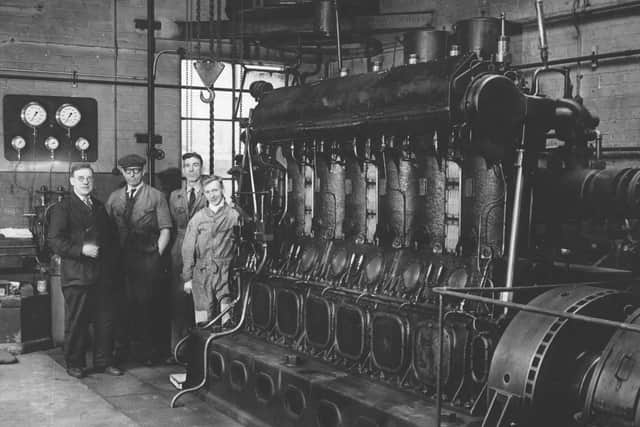

The Preston Guardian derided the Preston Herald as ‘a subsidised Tory organ … a journal in which so many outrages upon decency have been tolerated, in the supposed interest of a political party’. Its ‘vulgar diatribes’ were ‘putrescent slime’, exhibiting ‘gross stupidity or determined mendacity’.
By the 1880s there were more papers to insult, most notably the Evening Post, launched from purpose-built premises where Top Shop is now (and where I started my reporting career).
Then there were the Football News and Athletic Journal opposite Cannon Street, the Catholic News and the Blackburn rival of the Evening Post, the Northern Daily Telegraph, which opened a Preston office opposite where the Fishergate Centre entrance is now. The presence of the newspaper offices meant news sometimes dominated Fishergate. Telegrams of breaking news such as the death of Prince Albert would be posted in the windows of the newspaper offices, attracting large crowds.
Advertisement
Hide AdAdvertisement
Hide AdAnd when football took off, the crowds grew so big they blocked the traffic, as fans waited for news of the latest goal from a North End away game, sometimes announced by one of the Toulmins from the door of the Evening Post office. In the research for my new book, I counted more than 50 newspapers and magazines published in Preston across the 19th century
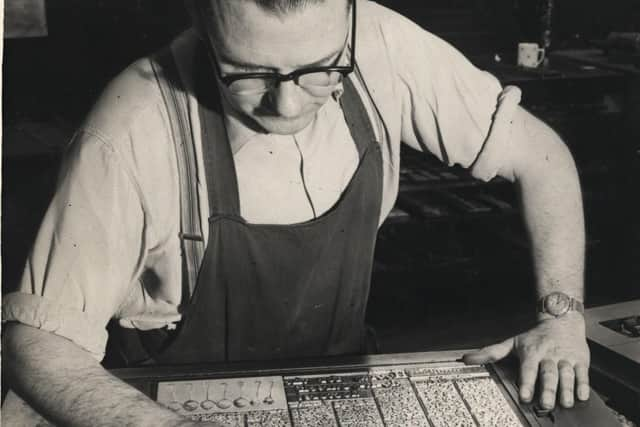

But who read all these newspapers? Illiteracy was no barrier in a time when it was normal to read newspapers out loud – in fact pub landlords hired readers, who could bring court cases to life by doing different voices for the magistrate, the policeman, the witness and the defendant.
Local historian William Pilkington wrote of how reading the paper aloud and discussing its contents became a weekly highlight in some Preston pubs during the excitement of the 1830 election, at which the radical Henry Hunt defeated Lord Stanley. “They flocked to the public-house on a Sunday evening as regularly as if it had been a place of worship, not for the set purpose of getting drunk, but to hear the newspaper read,” he wrote. “The success of the landlord depended, not on the strength of his beer altogether, but on having a good reader for his paper.”
For most of the 19th century, only the rich bought their own copy to read at home. Most of us would have heard the news read in the pub, or paid to join a public reading room. Things improved in 1879 when the public ‘free’ library opened, in a room in the town hall.
Advertisement
Hide AdAdvertisement
Hide AdThe importance of newspaper-reading is shown in the advert announcing the new library, which lists all the papers available, and barely mentions the books.I trawled through library annual reports and records of reading rooms and began to notice it was always the local papers which needed multiple copies to meet demand, rather than the London dailies. Local papers were far more popular than ‘nationals’, until the 1930s at least.
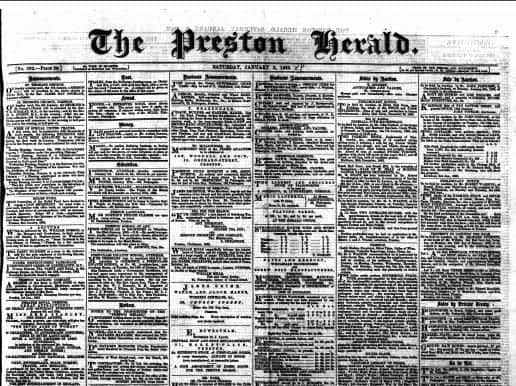

But why was the local paper so popular from the 1860s onwards? If you’re reading this, you probably know! Then, as now, local papers made the ordinary special, just by reporting local events and celebrating achievements. You might not be famous, rich or powerful, but the people you love and the place where you live are still important, and worth immortalising in print.
* A Fleet Street in Every Town: The Provincial Press in England, 1855-1900 by Andrew Hobbs, is on sale at the Harris Museum shop, £23.95, or download it free at https://www.openbookpublishers.com/product/835